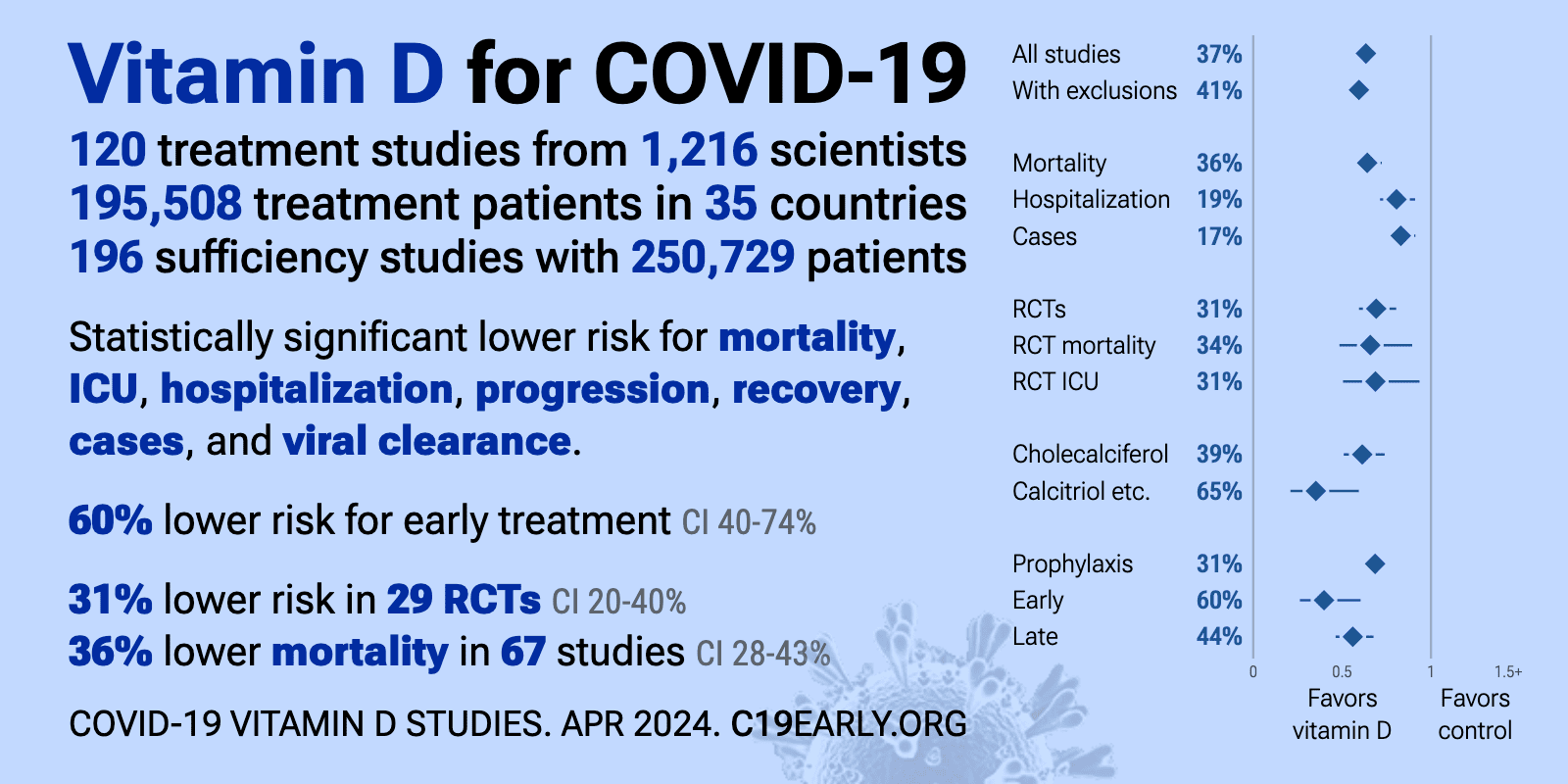The Role of Micronutrient and Immunomodulation effect in the vaccine era of COVID-19
J Chin Med Assoc. 2021 Jul 16. doi: 10.1097/JCMA.0000000000000587
Yu-Ju Lai 1, Huan-Shuo Chang, Yi-Ping Yang, Tzu-Wei Lin, Wei-Yi Lai, Yi-Ying Lin, Cheng-Chang Chang
Some of the nutrients in this study also prevent and/or treat COVID-19
- Vitamin D is one of 14 ways proven to treat COVID-19 – July 2021
- COVID-19 risks reduced by Vitamin D, Magnesium, Zinc, Resveratrol, Omega-3, etc. (auto-updated)
COVID-19 treated by Vitamin D - studies, reports, videos
As of Oct 5, 2021, the page had: 34 trials, 6 trial results, 25 meta-analyses and reviews, 64 observations, 35 recommendations, 55 associations, 89 speculations, 48 videos see related: Governments, HealthProblems, Hospitals, Dark Skins, 26 risk factors are ALL associated with low Vit D, Recent Virus pages Fight COVID-19 with 50K Vit D weekly Vaccines

- The above image is automatically updated
83 Vitamin D Life pages with VACCIN in title as of july 2021
Download the PDF from Vitamin D Life
A portion of graphic in the PDF
Different dietary nutrients have distinct effects, including enhancing immune response activity and supporting mucous membrane integrity. These effects are critical in fighting against pathogenic agents, which cover COVID-19, the coronavirus disease that shuts down globally. Recent researches have shown that micronutrient deficiency is commonly associated with compromised immune responses, respiratory tract infections, or even susceptibility to COVID-19.
- The relationship between Vit A and infection is its role in mucosal epithelium integrity (skin and mucous membrane), the supplementation could be an option for assisted-treating the SARS-CoV-2 virus and a possible prevention of lung infection.
- Vit C/ascorbic acid stimulates oxygen radical scavenging activity of the skin and enhances epithelial barrier function. Ascorbic acid alone or with other natural compounds (baicalin and theafalvin) may inhibit the expression of angiotensin converting enzyme II in human small alveolar epithelial cells and limited the entry of SARS-CoV-2.
- Vitamin D receptors (VDRs) can be expressed by immune cells, and different immune cells (macrophages, monocytes, dendritic cells, T cells, and B cells) can convert Vit D into its active form 1,25-(OH)2 D. Oral vitamin D intake can be a readily way to restrict the viral infection through down regulation of ACE2 receptor and to attenuate the disease severity by decreasing the frequency of cytokine storm and pulmonary pro-inflammatory response.
- Vit E supports T-cell mediated functions, optimization of Th1 response and suppression of Th2 response. Vitamin E supplementation can lower the production of superoxides and may favors the antioxidants and benefit the progress of COVID-19 treatment.
- Zinc plays an essential role in both innate and adaptive immune systems and cytokine production, and Zinc-dependent viral enzymes to initiate the infectious process have proved the Zinc levels are directly associated with symptoms relieved of COVID-19.
- Iron is an essential component of enzymes involved in the activation of immune cells, lower iron levels predispose to severe symptoms of SARS-CoV-2, and monitoring the status can predict the disease severity and mortality.
- Selenium participates in the adaptive immune response by supporting antibody production and development. Deficiency can reduce antibody concentration, decreased cytotoxicity of NK cells, compromised cellular immunity, and an attenuated response to vaccination.
The COVID-19 vaccines including three broad categories, protein-base vaccines, gene-based vaccines (mRNA vaccines and DNA vaccines), combination of gene and protein-based vaccines.
Micronutrients are involved in immunity from the virus entering the human to innate immune response and adaptive immune response.
Micronutrients are indispensable in immune response of vaccination.
